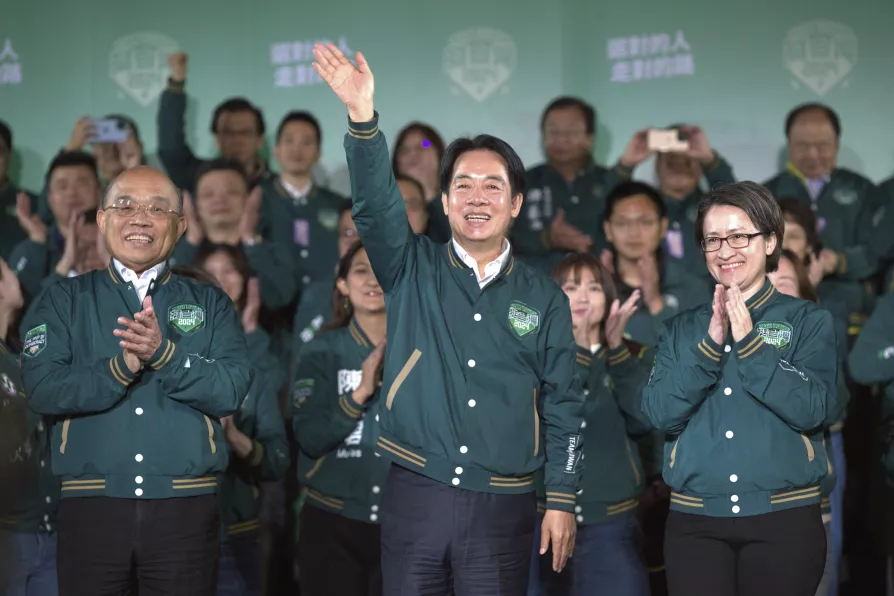Marco Rubio views 1945 as a defeat for the West, wants to revise the post-war order, while German ministers lead the standing ovation. SEVIM DAGDELEN reports

 Taiwanese Vice President Lai Ching-te, also known as William Lai, centre, celebrates his victory with running mate Bi-khim Hsiao, right, and supporters in Taipei, Taiwan, January 13, 2024
Taiwanese Vice President Lai Ching-te, also known as William Lai, centre, celebrates his victory with running mate Bi-khim Hsiao, right, and supporters in Taipei, Taiwan, January 13, 2024
PRESIDENTIAL elections in Taiwan have returned the ruling Democratic Progressive Party’s (DPP) candidate Lai Ching-te with 40 per cent of the vote, beating his main rival Hou You-yi of the Chinese Nationalist Party (Kuomintang or KMT) on 33.49 per cent, and Ko Wen-je of the Taiwan People’s Party (TPP) supported by 26.46 per cent of voters.
Lai, who is the incumbent vice-president, led the DPP to its third consecutive term in office, the first three-time tenure since direct presidential elections began in Taiwan in 1996.
In a victory speech, president-elect Lai said Taiwan had shown the world that “between democracy and authoritarianism, we will stand on the side of democracy.”

STEPHEN BELL reports from a delegation that traced the steps of China’s socialist revolution from its first modest meetings to the Red Army’s epic 9,000km battle to create the modern nation that today defies every capitalist assumption

From 35,000 troops in Talisman Sabre war games to HMS Spey provocations in the Taiwan Strait, Labour continues Tory militarisation — all while claiming to uphold ‘one China’ diplomatic agreements from 1972, reports KENNY COYLE











